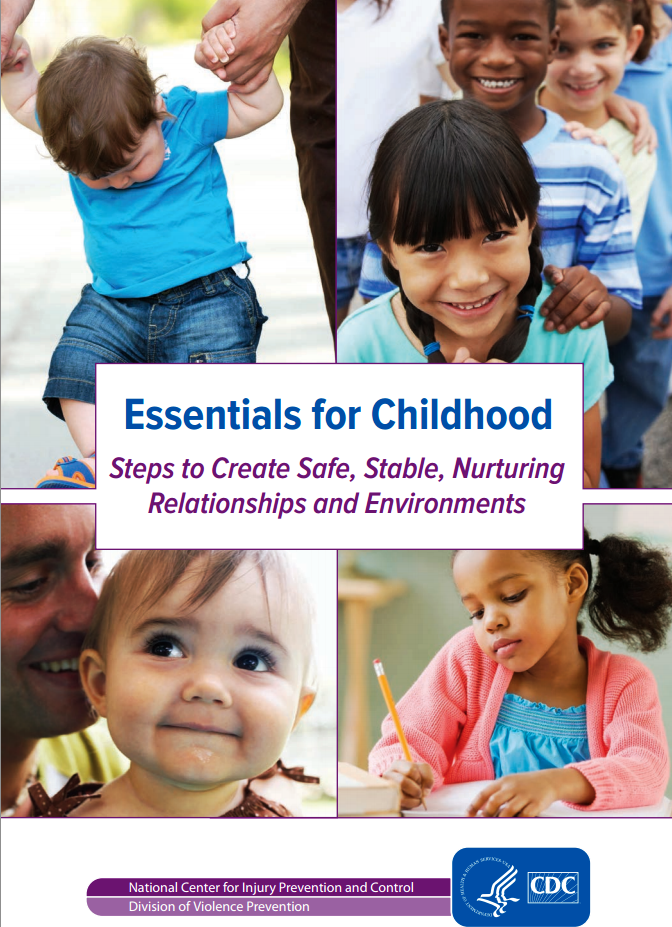All children need healthy and supportive relationships and environments to help them learn and grow.
These relationships and environments are essential for lifelong health and success. When children experience trauma, violence, maltreatment, or adversity, it can cause toxic stress that can have a lifelong impact on their learning ability, brain development and health.
Fortunately, there are ways to enhance the natural strengths and resilience of children, families, and communities to prevent trauma and limit its impact. System-wide changes can create a healthy context for parents and caregivers, promote relationship health, and foster the development of positive, healthy outcomes for all children.
Essentials for Childhood Framework
Safe, stable, and nurturing relationships and environments are essential to prevent child maltreatment and to assure children reach their full potential. The Essentials for Childhood Framework[PDF 5.5MB] proposes evidence-based strategies communities can consider to promote relationships and environments that help children grow up to be healthy and productive citizens so that they, in turn, can build stronger and safer families and communities for their children.
The Essentials for Childhood Framework is intended for communities committed to the positive development of children and families, and specifically to the prevention of child abuse and neglect. While child maltreatment is a significant public health problem, it is also a preventable one. The steps suggested in the Essentials for Childhood Framework — along with your commitment to preventing child maltreatment—can help create neighborhoods, communities, and a world in which every child can thrive.
State Level Implementation of the Framework
The Centers for Disease Control and Prevention’s (CDC) Division of Violence Prevention is funding five state health departments in California, Colorado, Massachusetts, North Carolina, and Washington to implement the five strategies in Essentials for Childhood Framework. Specifically, state health departments will
- Coordinate and manage existing and new partnerships with other child maltreatment prevention organizations and non-traditional partners;
- Work with partners to identify strategies across sectors;
- Identify, coordinate, monitor and report on the strategies implemented by multi-sector partners;
- Coordinate improvement processes (e.g., continuous quality improvement) for multi-sector partners to refine strategies; and
- Document state-level impact of these efforts.
Who is Involved
A wide variety of partners are working to carry out the EfC vision. These include a Steering Committee, staff at the Departments of Health and Early Learning, four workgroups, and partners across the state. This work is funded by the Centers for Disease Control and Prevention, private funders, and partners.
Stay Involved in EfC
The success of EfC depends on the collaboration of partners, communities, families, and individuals. If you are interested in receiving updates and learning how you can be more involved, email essentials4childhood@doh.wa.gov.
Source: Washington State Department of Health and the Centers for Disease Control and Prevention

